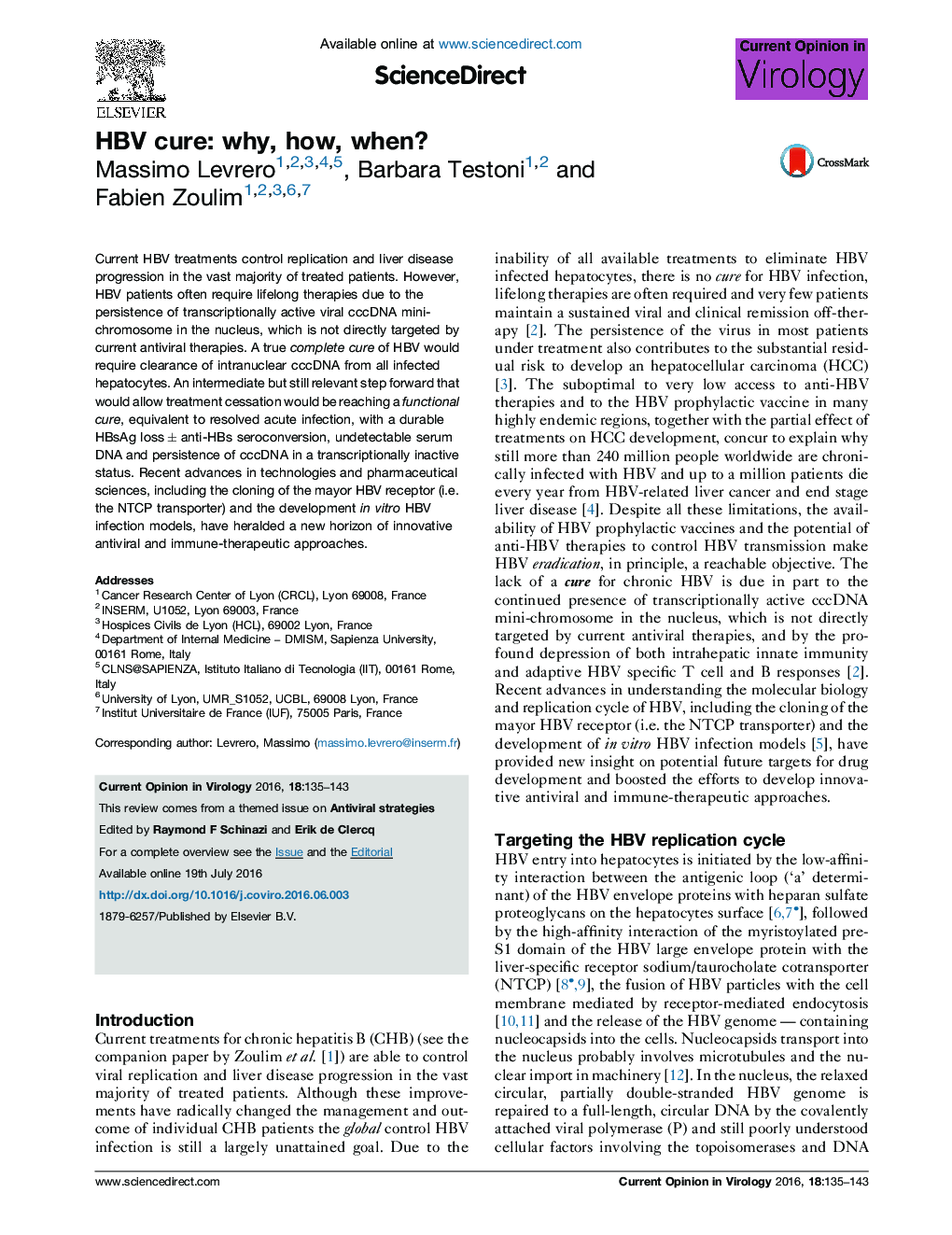| Article ID | Journal | Published Year | Pages | File Type |
|---|---|---|---|---|
| 5806567 | Current Opinion in Virology | 2016 | 9 Pages |
â¢There is no cure for chronic HBV. Sustained off-therapy viral and clinical remission is rare.â¢NUCs do not target the cccDNA mini-chromosome.â¢Functional cure equals resolved acute infections and allows treatment cessation.â¢Complete cure would require nuclear cccDNA clearance from all infected hepatocytes.â¢Targeting cccDNA and immune-restoration are likely needed for cure.
Current HBV treatments control replication and liver disease progression in the vast majority of treated patients. However, HBV patients often require lifelong therapies due to the persistence of transcriptionally active viral cccDNA mini-chromosome in the nucleus, which is not directly targeted by current antiviral therapies. A true complete cure of HBV would require clearance of intranuclear cccDNA from all infected hepatocytes. An intermediate but still relevant step forward that would allow treatment cessation would be reaching a functional cure, equivalent to resolved acute infection, with a durable HBsAg loss ± anti-HBs seroconversion, undetectable serum DNA and persistence of cccDNA in a transcriptionally inactive status. Recent advances in technologies and pharmaceutical sciences, including the cloning of the mayor HBV receptor (i.e. the NTCP transporter) and the development in vitro HBV infection models, have heralded a new horizon of innovative antiviral and immune-therapeutic approaches.
